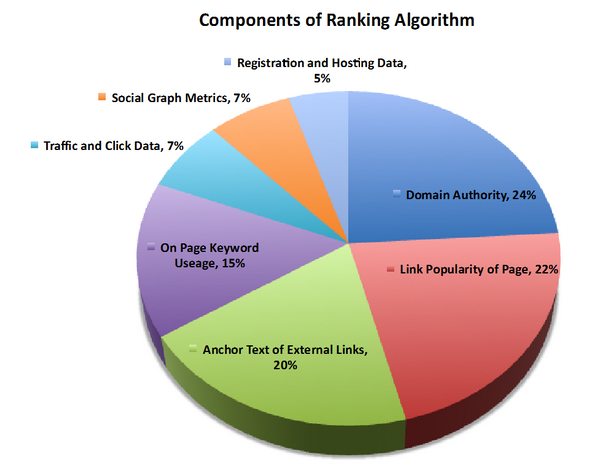Recently there seems to be a lot of complaints about Google’s search algorithm. Let’s face it, Google’s search algorithm is not perfect. However, it is as close to perfect as just about anything. Google is the world’s leading internet search engine. Billions of information is posted on the Internet, and it can be difficult to accommodate them all with a state of the art search algorithm. Therefore, the answer to this question is highly unlikely. Still, Google is doing the best they possibly can in coming anywhere close to the perfect SEO method.
On a regular basis, Google staff members upgrade the search engine’s algorithm. This is quite a nuisance to website owners and SEO marketers like www.WSIDigitalWeb.co.uk, but Google’s true intention is deliver the best search engine results by constantly improving the algorithm. This is also bad news to spammers who are always looking for ways to outsmart Google`s staff. Winston Churchill famously stated, “To improve is to change; to be perfect is to change often”. Google is always changing, and that is about close enough as you are going to get to perfect.
As a result to Google`s rapidly shifting search algorithm, web site owners are forced to even update their SEO strategies in order for them to maintain a high website ranking. This isn`t always easy because of Google`s search algorithms being so intricate. Therefore, web site owners have to use traditional and proven SEO methods along with trial and error. There is no wonder why there are so many complaints and questions as to whether Google will obtain a perfect search engine algorithm without all the seemingly unnecessary changes. Nonetheless, Google has prepared for an outcome such as this.
When Google creates a new search algorithm, a team of dedicated staff surf the internet to find out which websites are relevant and useful. They also pick out the websites that are scammed, and give them a rank. Hence, the websites that are genuine are given high rankings, while the spam sites are given relatively lower rankings. Google`s improved search algorithm distinguished them both, and that is how they improve. On the good side, this is a very effective way for spam sites to be avoided, and for the most useful websites to appear first when searched.
Google claims that they fight spam 24/7. Google states that they automatically remove spam documents. They also said that they if they find spam then they will take action. To be clear, Google has done all of these things. If you were to use Mozilla Firefox, there wouldn’t be any correct opposition toward spam.

It`s obviously annoying when you can`t search websites like YouTube, Facebook, or Twitter without being told that your computer is at risk. Immodest accusations such as that proves that Mozilla doesn`t have any sufficient search algorithm improvement. Search engines such as Bing, Yahoo, or MSN are never as reliable as Google when it comes to searching people, events in history, or local places.
As a matter of fact, Google gives the most accurate and relevant search results, far better than any other search engine. This lets you know that Google has a far more up-to-date search algorithm than Yahoo, Bing, MSN, and Firefox. We can find evidence in our everyday language. When someone asks you a question you do not know, a unfamiliar person in ancient history, or the celebrity that played in your favorite 80`s movie, your first reaction may be to Google the answer. Google may never perfect it`s search algorithm, but at least you get better results than they competitors. As for website owners, life is a cycle. Even if Google didn`t constantly change its algorithms and allowed
spammers to tear the internet apart, you still would have to come up with new SEO solutions on a routine basis. The so called “tried and true” SEO methods that you may be accustomed to will all become outmoded and obsolete later. Why not come up with better SEO methods initiatively without all the complaining.
Spammers are not the only reason why Google is continuously changing their search algorithms. Obviously, the internet is always changing. Keeping the same search algorithm every time will leave spammed websites and sites of companies long closed on Google`s main search results. Every second, billions of information is posted on the internet. New websites are developed, more updates are made for these websites, and more spammers are creating new tactics in order to bombard the Internet with false information and unnecessary viruses. Google must change its algorithm in order to keep up with the game.
On the other hand, there are some possibilities that Google might succeed at optimizing a new and perfect search algorithm. One possible solution may be to evaluate web owners once setting up a new website. The evaluation can be put forth for Google staff to individually rank each site and determine which one will be more useful.
Thus, the most useful websites will be the first to appear when a keyword is searched. A breakthrough algorithm such as this will cease all of your redundant headaches on not finding the right website. After all, Google claims that they will automatically delete spam when they find it. Evaluating websites to clarify if they are genuine is on the right path to go, but there are some possible drawbacks.
The complication of evaluating every single website, counting the ones that have already been established, is overwhelming. I don`t even think Google can do a task such as this, which is why my answer to a perfect search algorithm is highly unlikely.
Still, we may never know. Google has done some amazing things in the past, and its future is bright for all seemingly impossible possibilities. Over 15 years, Google has accumulated a lot of success enough to be on the same par as companies such as Apple and Microsoft.
In essence, I believe that a perfect search engine algorithm for any search engine is unlikely. Even for Google, this is a hard enough task with a threat of relentless spammers and a constantly Internet. However, with Google rapidly improving their algorithm, the best is only yet to come.















